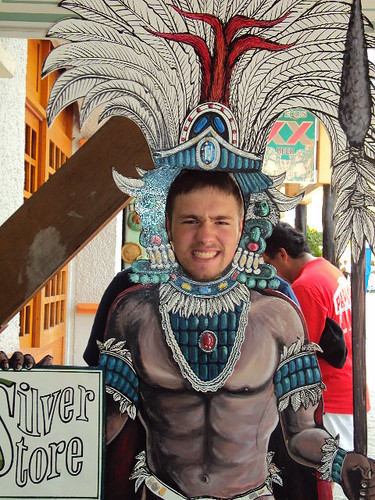Analysis of Detail
From his first paragraph, John Steinbeck sets the scene in Of Mice and Men through his use of imagery as he describes the natural world as a parallel to later events in the novella. For instance, "the Salinas River drops in close to the hillside bank and runs deep and green," possesses a non-literal meaning and serves as a means to hint at a coming event or time. The "green" mentioned can mean sick, or jealous, or abundant. "Deep" can relate to a river that it has depth and therefore strength. In the context of the novel,George thinks things through and seems to posses a strength in the mental realm that will help Lennie and himself throughout countless trials. Lennie has abundant physical power, but also is, in a sense, "green" (sick) in the head, which will lead George into having to make decisions that determine his fate. The way that Steinbeck describes the part of the scenery as "slopes curve up to the strong and rocky
Gabilan mountains" also holds some complex significance. "Strong" can relate to George in a mental way, or Lennie in a physical way. "Rocky" can mean unstable or dangerous. Later, George solves problems with his stalwart intellect whereas Lennie makes even more with his bumbling instability as well as his formidable strength. These problems posses a certain element of danger as well, causing many difficult choices to be made ahead. Steinbeck also hints at less obvious parallels when he says, "under the trees the leaves lie deep and so crisp." "Deep" here can be buried or deep green, as the leaves once were. Perhaps the word refers to the depth again. "Crisp" can be fresh, as in new or inexperienced, and also fragile, a terrible combination in any case. Therefore, George continues to search deeply for answers to the duo's problems, but "crisp," inexperienced Lennie nears his breaking point. The mentioning of "a path beaten hard by boys coming down from the ranches to swim in the deep pool, and beaten hard by tramps who come wearily down from the highway" naturally would mean something deeper as well. A "path" can refer to a path of life, the consequential series of events following a specific action. Because it was beaten hard, many people have followed this path of life, by both innocent children to take a dip in a refreshing pool, and by tramps ambling on from another such path. Perhaps either George or Lennie will make a choice that will lead them down a path of life that can end up with a deep, refreshing awakening like the children, or weariness and restlessness like the tramps. Steinbeck's final clue lies in the sentence "the limb is worn smooth by men who have sat on it." Yet again, many people have been in the exact same position, sitting on the limb until it becomes bare. In context of the entire novel, this means that George or Lennie will be in the same position as many others, somehow.
Analysis of Point of View
John Steinbeck used the third-person objective point of view throughout the novel to stress the isolation each man experiences. One indicator of this lies in the passage "Crooks did not see him...on raising his eyes...a scowl came on his face."
"Lennie smiled helplessly in an attempt to make friends." (p 68) This shows that Crooks indeed was a loner. He does scowl at the appearance of Lennie after all. He must not have many human bonds at all considering how hatefully he behaves toward a man that obviously does not posses average mental capabilities. Also based on this, Crooks appears to value his privacy above relationships. He continually attempts to shoo people from his room with obvious body language as well as direct requests. Lennie on the other hand apparently wants friendships, and looks constantly for them. His loneliness led him into
Crooks's room. Moreover, Lennie seems to have a hunger for relationships. He always tries to have a companion, even if they are dead like the mouse at times. Lennie needs the sense of security that comes with not being alone. George's words also sum up the intent of Steinbeck when he says, "Guys like us, that work on ranches, are the loneliest guys in the world. They got no family. They don't belong no place." (p 13) Essentially he says that ranch workers have no one to rely on and must live out an existence of wandering, for they "don't belong no place." Looking at the whole novel, this statement means that, in the end, ranchers will only have themselves to rely on. However, George had Lennie and Lennie had George. (Spoiler Alert!) Until the very end that is. George thought that he had to kill Lennie to save him a torturous death or imprisonment. (End of Spoiler) Therefore, at the very end, and probably for the rest of his life, George was forced to live the lonely, pitiful life he described, drifting from place to place and never being truly happy. By using the third-person objective point of view, Steinbeck quite effectively amplified the effect of lonely lives of these men in a way that he otherwise could not have done.
Analysis of Tone
Stienbeck's use of contrasting delighted and somber tones to amplify the already stark contrast between George and Lennie. In one scene,
Stienbeck uses the following quotes, "Lennie cried in triumph." " 'For the rabbits,' Lennie shouted." "Lennie giggled with happiness." All three of these clearly show the ecstasy that Lennie experiences in those fleeting moments, and seem almost to be heard by the author in a happy tone. However, in the same scene,
Stienbeck uses words like "George was quite for a moment." "He said shakily..." "George shivered and looked at the gun..." "But George sat stiffly on the bank and looked at his right hand that had thrown the gun away." "George's voice was almost a whisper." and, " 'Yeah, a drink,'" in a serious and
saddenning tone. His
pre-action shakiness and quietness can be attributed to the sadness he knew that he would feel after the deed was done. Afterward, George was shocked and daunted at all he had done, leading him to throw the gun away, sit despondently, and, with his mind merely half aware of what was occurring around him, agree to go get a drink with Slim. Such a contrast between these two men in the same few pages leads a reader to note differences perhaps overlooked. This kind of contrast also produces a bit of irony, for the last thought in Lennie's head was George shooting him. And that is exactly what happened. Steinbeck's use of these conflicting tone words in close proximity highlight more differences between the two protagonists than ever and produces a kind of irony, the kind that really makes a person wonder of the righteousness of his action, and whether or not they would have done the same.
Analysis of Theme
Among the various themes that Steinbeck portrayed through his novel,
Of Mice and Men, the idea of one person being his brother's keeper comes up. This is evident in many episodes during the book. For instance, when Lennie and George are attempting to get a job at the farm, George tries adamantly to get Lennie the job. When questioned about why he replied, "I told his old lady I'd take care of him" (Steinbeck, p21). George could easily have obtained the job on his own, but he defended Lennie's interests as well. Perhaps he lied a bit, but he nonetheless looked out for Lennie out of the goodness of his heart. Lennie had been nothing but trouble for George after all. After feeling of a girl's dress in Weed, which caused her to scream rape and him to grab and hold onto her in fear, the duo had to run for their lives. George could have abandoned Lennie then and there and saved himself a lot of pain later, but he did not. He allowed Lennie to come along with him to his next job. Once there, a small man by the name of Curly had various problems with Lennie. After all, "
Curly's like a lot of little guys. He hates big guys." (Steinbeck, p26). George then proceeds to warn Lennie of this belligerent man, in essence doing the little he can to watch out for his friend. Far later after Lennie accidentally kills
Curly's wife, a search-and-kill party is formed to find and destroy Lennie. George initially wishes to find Lennie so that "they'll lock '
im up an' be nice to '
im." (Steinbeck, p94) However, when Slim bats this fantasy out of the sky, George realizes that he has two options; let Curly find Lennie and kill brutally harm and kill him, or find Lennie first and painlessly kill Lennie himself. In the end, "he pulled the trigger." (Steinbeck, p106). George, despite the intense grief he would feel, decided to give Lennie the only merciful option of death. George was heartbroken after this, and probably would think back to that moment with regret forever. But he did play his brother's keeper in that moment, perhaps in the most emotionally tugging way possible.


